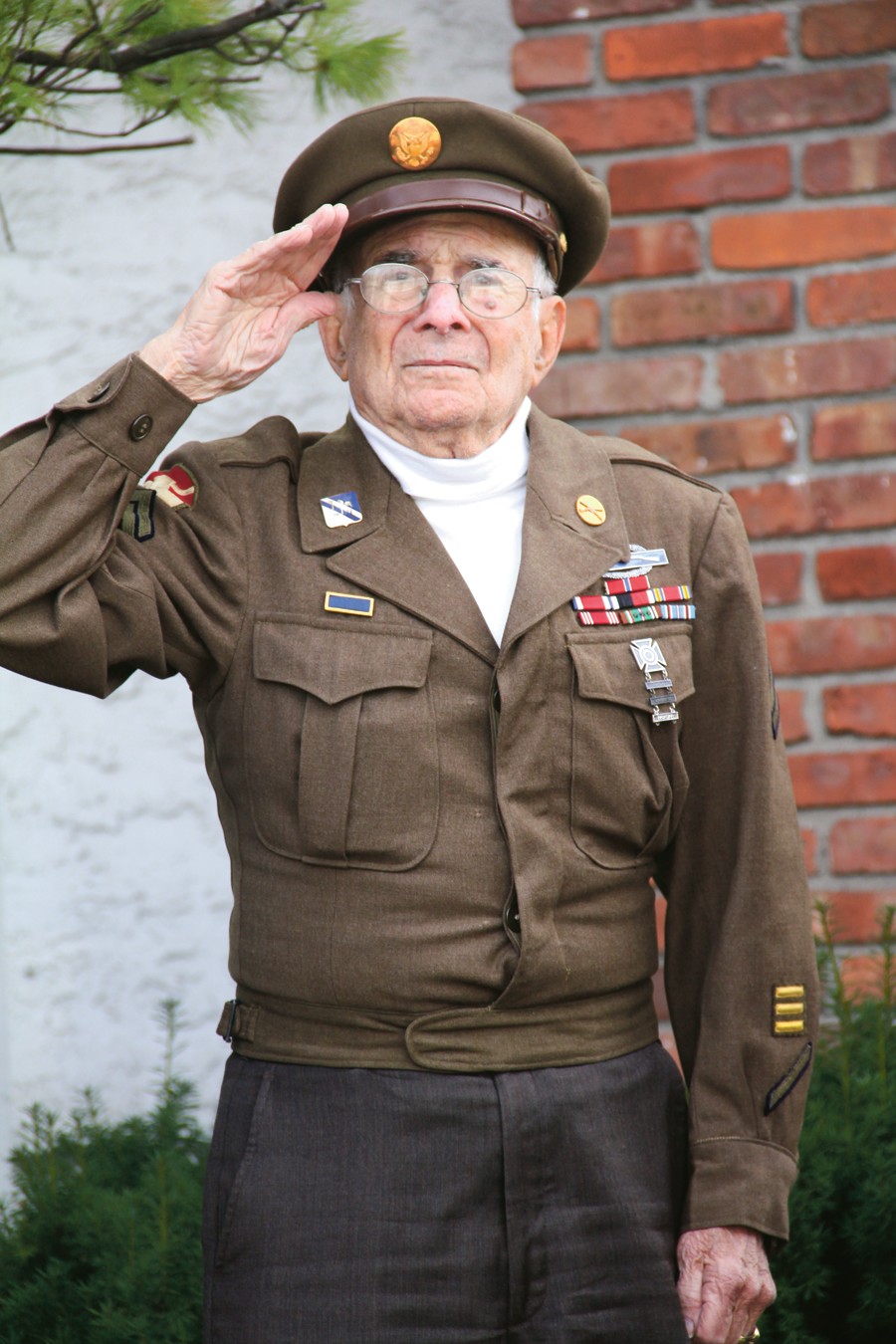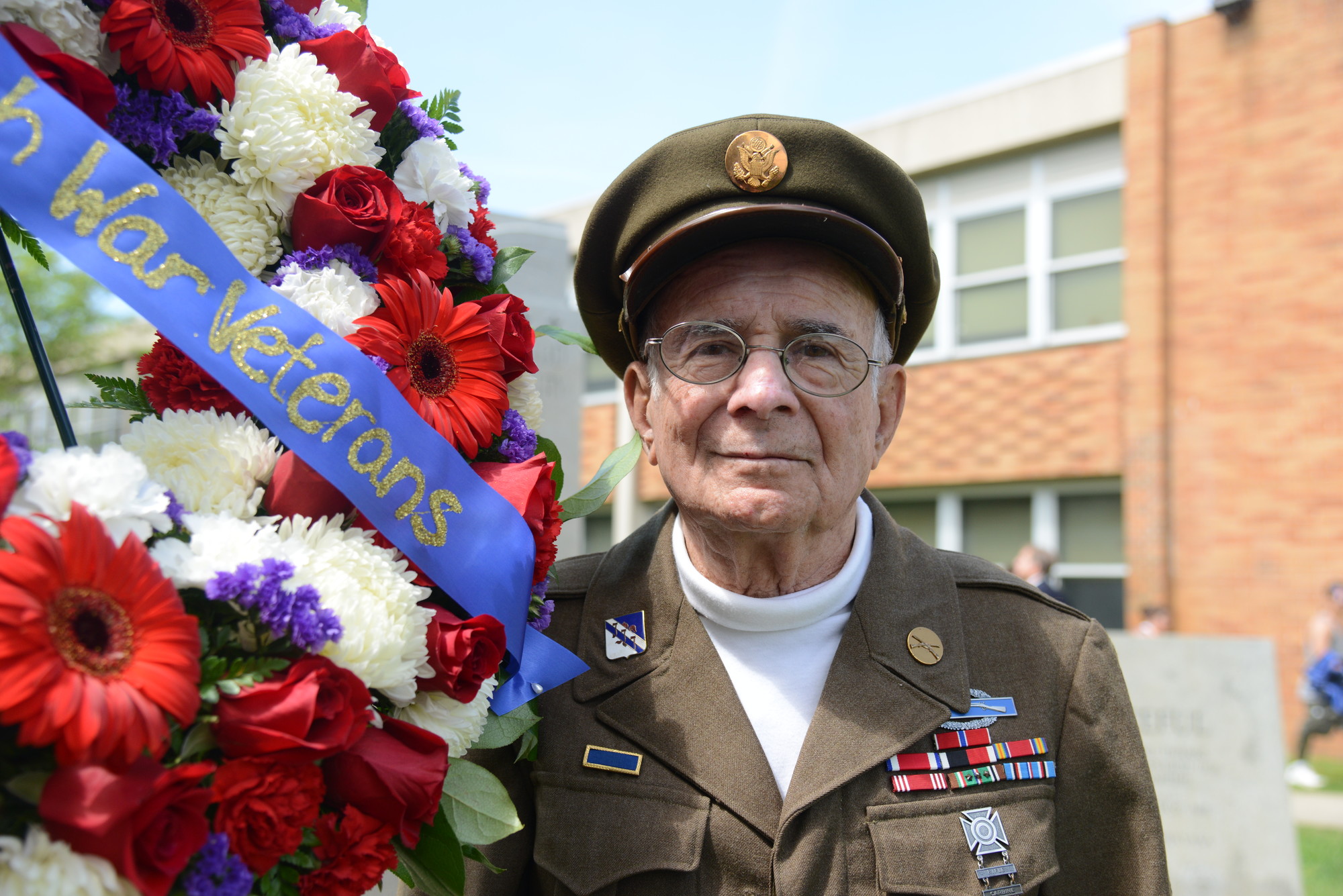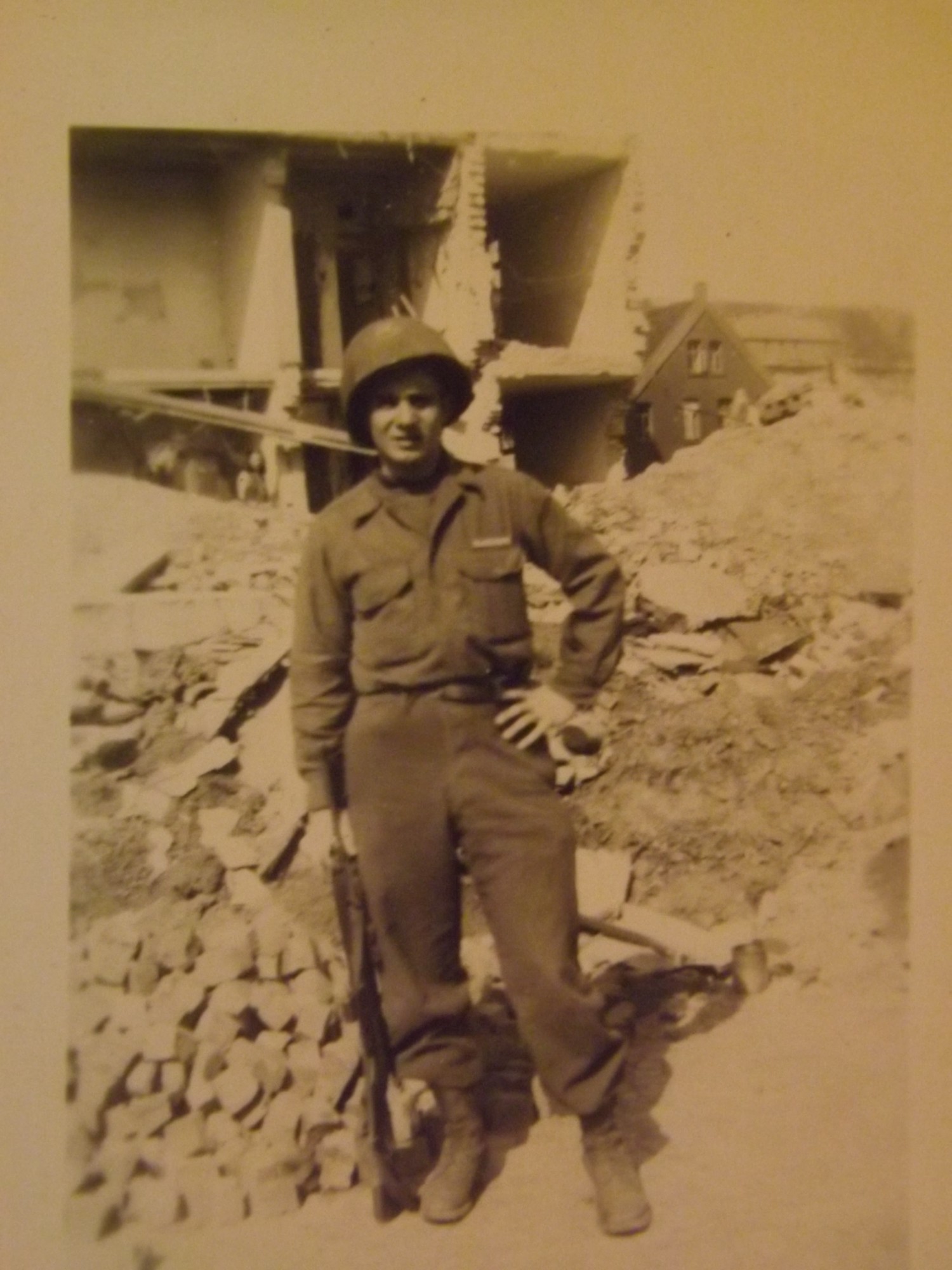Battle of the Bulge to Baldwin
World War II hero Dave Marshall still fits into his uniform at 90
When Dave Marshall turned 18 in 1943, the world was in the midst of a major war. The United States entered the conflict late in 1941, so Marshall knew he would be drafted once he became eligible, but he had no idea what would be in store for him after that.
Marshall is now 90, and lives with his wife of 65 years, Terry, in Baldwin. The couple raised two daughters in the community after moving from Queens in the 1960s.
But before he and Terry met, Marshall was defending his country in Europe, and focused on making it home alive. Once he received word of his draft status in 1943, he looked forward to entering the fight. “That was a popular war when compared to others that have followed,” he recalled. “The whole country was behind the war effort. I was glad to go serve my country.”
Marshall was trained to become a field medic, but then transferred to study engineering at the Drexel Institute of Technology. The military was training engineers to help rebuild the world once the war was over, he said, but the program was eventually scrapped.
In 1944, Marshall joined the Army’s 84th Infantry Division, also known as the Railsplitters. While he was training in Louisiana, Allied forces stormed the beaches of Normandy, France, and began their campaign against Nazi Germany in Europe. “It was a relief that the U.S. was going on attack,” Marshall said, “and that it was a success.”
He found himself on Omaha Beach in November 1944, after first being deployed to England. There were rumors swirling around the infantry, Marshall remembered, that they would be deployed to the Pacific, which he and the other soldiers were dreading, but instead they were Europe-bound.
That winter, in Germany, the 84th Infantry got involved in one of the most important battles of the war, the Battle of the Bulge. Marshall had no idea then of the historical significance of the battle; he was simply trying to survive. For six weeks he fought German soldiers on German soil in the heart of winter, with a limited supply of warm clothes. It was difficult to dig foxholes in the frozen ground, he said, and there were few opportunities to find a home or barn in which to warm up.











